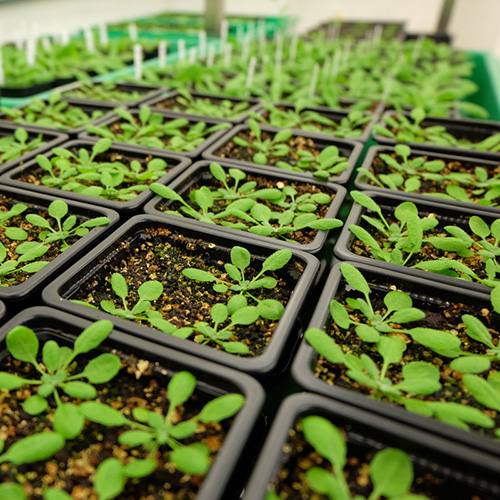Researchers uncover a key factor for plant survival under energy stress
Discovery may benefit future strategies to improve crops

Under stress, photosynthesis is compromised, and plants survive by degrading energy reserves and cellular constituents. In the new paper published in The Plant Journal, work developed at the IGC by the team led by Elena Baena-González (former PI at the IGC and currently at Oxford University) found a critical component for this survival response.
Elena Baena-González explains, “Plants are subject to different environmental stresses that compromise photosynthesis and respiration (drought, floods, shading, etc.), causing an energy deficit. Understanding the mechanisms that allow plants to adapt to energy stress can help develop new strategies to enhance crop productivity, especially under adverse environmental conditions.”
Leonor Margalha, one of the study’s first authors, details that the research “revealed that plant tolerance to energy stress depends on a component of the nuclear pore complex, HOS1. HOS1 allows the accumulation of the plant energy sensor, the SnRK1 protein kinase, in the nucleus of the cell. In response to stress, SnRK1 initiates an energy-saving program, for example, by suspending growth and promoting the remobilization of stored resources, thus allowing plant survival”.
Following this discovery, the team will look further into the detailed mechanisms by which HOS1 promotes the nuclear accumulation of SnRK1 and investigate their relevance for other aspects of plant growth and development.
Read Paper
